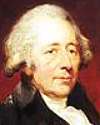
On 3 Sep 1728 (on the old Julian calendar), Matthew Boulton was born. He inherited a flourishing manufacturing business from his father, which he continued to develop. Although he is best-known for the support he gave to James Watt to introduce steam engines that powered the Industrial Revolution, Boulton also maintained his original business producing buttons, buckles and other decorative goods of silver and or mulu (a sort of gilded bronze). He also expanded into the production of coins using steam-powered presses. It is this variety of business activities that are related in an obituary published in The Monthly Magazine when he died in 1809—An Account of the Late Matthew Boulton, Esq. You may find it interesting to find that Boulton had more activities by which he was known in his own time, than his involvement in the manufacture and distribution of steam engines for which he is now remembered.

On 3 Sep 1728, Matthew Boulton was born. He inheriting his father's silver-stamping business for producing buttons and buckles. But that was just his introduction to becoming an astute businessman and industrialist. His greatest accomplishments came when he went into partnership, developing a market for James Watt's steam engines. Boulton & Watt steam engines were exported all over the world. Today's book pick is: Matthew Boulton: Selling What All the World Desires, by editor Shena Mason, who brings together other aspects of Boulton's extraordinarily varied achievements. Boulton's magnificent ormolu ornaments decorated aristocratic drawing rooms. His determination to discourage counterfeiters led to a contract to manufacture British coinage and coins of other countries at his mint. Boulton was leader of the campaign to establish the Birmingham Assay Office (still the busiest in the country), and he was also at the heart of the Lunar Society, a group of prominent industrialists, natural philosophers, and intellectuals interested in scientific and social change. Known to Ben Franklin, Thomas Jefferson, Erasmus Darwin, Josiah Wedgwood, and many others, Boulton was a fascinating man, Britain’s leading Enlightenment entrepreneur. This book was published for the bicentenary of his death, and provides an engaging survey of a remarkable life.
It is available from Amazon, typically about New from $22.49. Used from $22.00. (As of earlier time of writing - subject to change.)
 | I sell here, Sir, what all the world desires to have—POWER. About the improved steam engine invented by James Watt and brought into production at Boulton’s manufactory. |
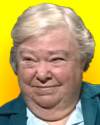 | A nuclear power plant is infinitely safer than eating, because 300 people choke to death on food every year. (1977) |
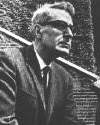 | If there is magic on this planet, it is contained in water. |
| Before you look at today's web page, see if you can answer some of these questions about the events that happened on this day. Some of the names are very familiar. Others will likely stump you. Tickle your curiosity with these questions, then check your answers on today's web page. | |
| Births | |
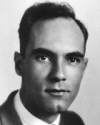 | Carl David Anderson, born 3 Sep 1905, won the Nobel Prize for Physics in 1936 for his discovery of a new atomic particle. He examined the photographs of cosmic rays taken as they passed through a Wilson cloud chamber in a strong magnetic field. What was this particle? |
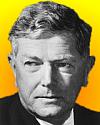 | On 3 Sep 1899, Sir Frank Macfarlane Burnet was an Australian physician and virologist, who shared the 1960 Nobel Prize for Physiology or Medicine for the discovery of acquired immunological tolerance to tissue transplants. He made pioneering use of a certain host material for virus multiplication. What did Burnet pioneer as the host medium for virus multiplication in his research. |
| Deaths | |
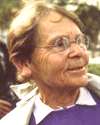 | Barbara McClintock (1902-1992) was an American scientist regarded as one of the most important figures in the history of genetics. In the 1940s and 1950s McClintock's work on cytogenetics led her to theorize that genes are transposable - they can move around - on and between chromosomes. She was awarded the Nobel Prize in Physiology or Medicine in 1983, the first American woman to win an unshared Nobel. What plant was the subject of this research? |
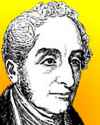 | On 3 Sep 1854, Henry Fourdrinier died, an English inventor who co-invented paper-making machinery with his brother, Sealy. Together, they spent a spent a fortune over their lifetimes not only in perfecting the machine, but also on costly legal battles to defend their patents. They died without any substantial return on their investment, but did obtain a small grant of compensation from Parliament. Paper-making machinery today still uses the production process known by their name. What was the distinctive innovation the Fourdriniers introduced to paper-making? |
| Events | |
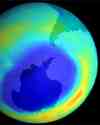 | On 3 Sep 2000, NASA data showed the Antarctic ozone hole at just under 11 million square miles - the biggest it had ever been. Record-low temperatures in the stratosphere are believed to have helped the expansion of the ozone hole during the Antarctic spring season. By 9 Sep 2000, the hole had grown over another country. What was the other country? |
 | On 3 Sep 1996, Slowinski and Gage discovered the number 2^1257787-1, the 34th of its kind. What was special about this number? |
Fast answers for the previous newsletter for September 2: teacher • isotope (“same place” - on the Periodic Table) • ...to the pressure of the gas above the liquid, provided that no chemical action occurs. • Titanic • 14 September.
 If you enjoy this newsletter, the website, or wish to offer encouragement or ideas, please send feedback by using your mail reader Reply button.
If you enjoy this newsletter, the website, or wish to offer encouragement or ideas, please send feedback by using your mail reader Reply button. Your click on a Facebook, StumbleUpon, or other social button on the site webpages is also a welcome sign of appreciation. Thank you for using them.
© This newsletter is copyright 2020 by todayinsci.com. Please respect the Webmaster's wishes and do not put copies online of the Newsletter — or any Today in Science History webpage. (If you already have done so, please remove them. Thank you.) Offline use in education is encouraged such as a printout on a bulletin board, or projected for classroom viewing. Online, descriptive links to our pages are welcomed, as these will provide a reader with the most recent revisions, additions and/or corrections of a webpage. For any other copyright questions, please contact the Webmaster by using your mail reader Reply button.
--
If you do not want to receive any more newsletters, Unsubscribe
To update your preferences and to unsubscribe visit this link
Executive Real Estate Business Class
-
"It was like a man with wings. It wasn't like anything you'd see on TV or in a monster movie." ...
About the publisher
Search This Blog
Blog Archive
-
▼
2020
(1542)
-
▼
September
(173)
- SCIENCE: Just how big is Everest?
- The Latest News from History News Network
- On This Day for September 30 - Munich Agreement si...
- We are called to return to our foundational values...
- Newsletter for Wednesday 30 September.
- They Killed His Wife And Left Him For Dead – Then ...
- TRAVEL: Telling new truths about America’s histori...
- Make learning fun with Nat Geo Kids magazine! Subs...
- On This Day for September 29 - British mandate in ...
- Newsletter for Tuesday 29 September.
- Special Edition: Dinosaurs come to life like never...
- September 29: On This Day in History
- HISTORY: America's most endangered historic sites
- New This Week on History News Network
- On This Day for September 28 - California “discove...
- Newsletter for Monday 28 September.
- September 28: On This Day in History
- FAMILY: What do I tell my kids about wildfires and...
- On This Day for September 27 - Norman Conquest beg...
- Newsletter for Sunday 27 September.
- September 27: The Rosetta Stone, E=mc² and Fear as...
- The Compass: Indonesia
- On This Day for September 26 - First televised U.S...
- Newsletter for Saturday 26 September.
- September 26: Frances Drake's Circumnavigation, th...
- CORONAVIRUS UPDATE: Is this the end of the office?
- PHOTOGRAPHY: They feed us. Now we see them.
- The assassination of Lord Mountbatten | Enola Holm...
- 39,500-Year-Old Cave Bear Discovered Perfectly Pre...
- On This Day for September 25 - Pacific Ocean sight...
- The Roundup Top Ten for September 25, 2020
- Newsletter for Friday 25 September.
- September 25: Battle of Stamford Bridge, Remote Co...
- ANIMALS: These mighty elephants find peace
- On This Day for September 24 - Federal troops sent...
- Newsletter for Thursday 24 September.
- Global cartels taking control of the world + HPA B...
- September 24: Decline of the Byzantine Empire, Ope...
- YOUR WEEKLY ESCAPE: America's oldest mystery
- SCIENCE: How to cope with a big death toll
- The Latest News from History News Network
- On This Day for September 23 - Neptune observed, J...
- Newsletter for Wednesday 23 September.
- September 23: Nintendo, the Start of Data Processi...
- TRAVEL: How will America’s state parks survive?
- Matching gift opportunity for Sumatran rhinos
- On This Day for September 22 - Solidarity formed, ...
- Newsletter for Tuesday 22 September.
- September 22: Salem Witch Trials, Iraq's Invasion ...
- HISTORY: Who can replace RBG?
- Feed their curiosity! Get Nat Geo Kids magazine fo...
- New This Week on History News Network
- On This Day for September 21 - Joseph Smith's visi...
- Newsletter for Monday 21 September.
- September 21: France, China and a Sheep Shearing R...
- FAMILY: Don’t tell your kids outdated stuff about ...
- On This Day for September 20 - Rome incorporated i...
- Pro-life is not Politics + Vickie Travis's message...
- Newsletter for Sunday 20 September.
- September 20: Attila the Hun, Magellan's Circumnav...
- The Compass: Chile
- Matching gift opportunity for Sumatran rhinos
- On This Day for September 19 - George Washington's...
- Newsletter for Saturday 19 September.
- CORONAVIRUS UPDATE: Young people are spreading the...
- September 19: 1st Country to Grant Women the Right...
- PHOTOGRAPHY: How to make dinos look new (CORRECTED)
- Quick Note: How to Save Videos by Downloading
- PHOTOGRAPHY: How to make dinos look new
- The Mayflower | Medieval spiders | Ancient Egypt f...
- When She Found Out Her Boyfriend Was A Serial Kill...
- The Roundup Top Ten from History News Network
- On This Day for September 18 - Mukden seized by Ja...
- Newsletter for Friday 18 September.
- "Truth Crushes Evil" + We're Winding down + What ...
- YOUR WEEKLY ESCAPE: The country that doesn't exist
- September 18: Great Fire of Moscow, the CIA and El...
- ANIMALS: How U.S. officials stopped the flying squ...
- Two New Podcasts From HISTORY
- Don't miss out: back to school savings for learner...
- On This Day for September 17 - Camp David Accords ...
- Newsletter for Thursday 17 September.
- September 17: Bloodiest Day in the American Civil ...
- SCIENCE: He found part of a one-of-a-kind dinosaur
- SPECIAL REPORT: How the West is primed to burn
- The Latest News from History News Network
- On This Day for September 16 - Mayflower's departu...
- Newsletter for Wednesday 16 September.
- September 16: French Abolish Slavery, Malaysia For...
- TRAVEL: Will slowing down help you get stronger?
- Special Report: How do we end this pandemic?
- On This Day for September 15 - Central Americans g...
- Newsletter for Tuesday 15 September.
- September 15: Darwin Reaches the Galapagos, Penici...
- HISTORY: How the U.S. battled catastrophic wildfir...
- BREAKING NEWS: Possible evidence of life found on ...
- Discover Remarkable Leaders With Nat Geo History M...
- On This Day for September 14 - Mexico City capture...
- New This Week on History News Network
- Newsletter for Monday 14 September.
-
▼
September
(173)
-
Blogroll
-
About
HistoryFact










0 comments:
Post a Comment